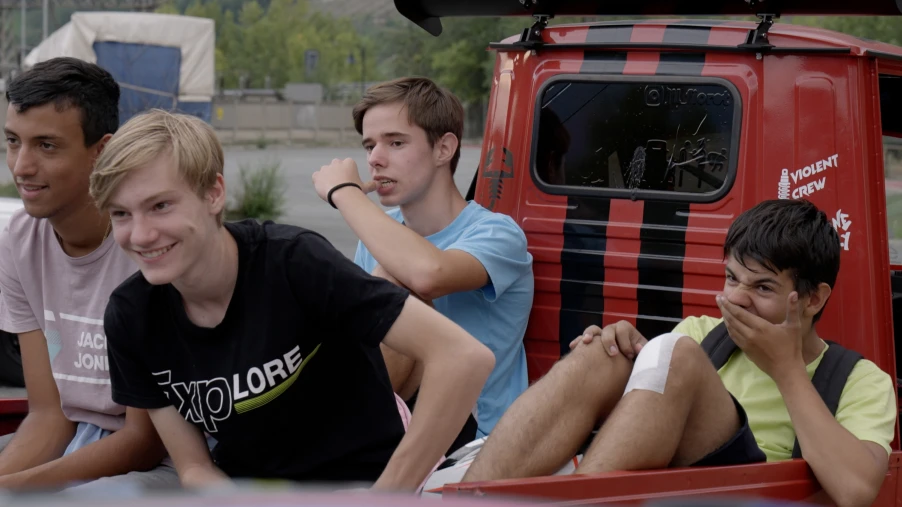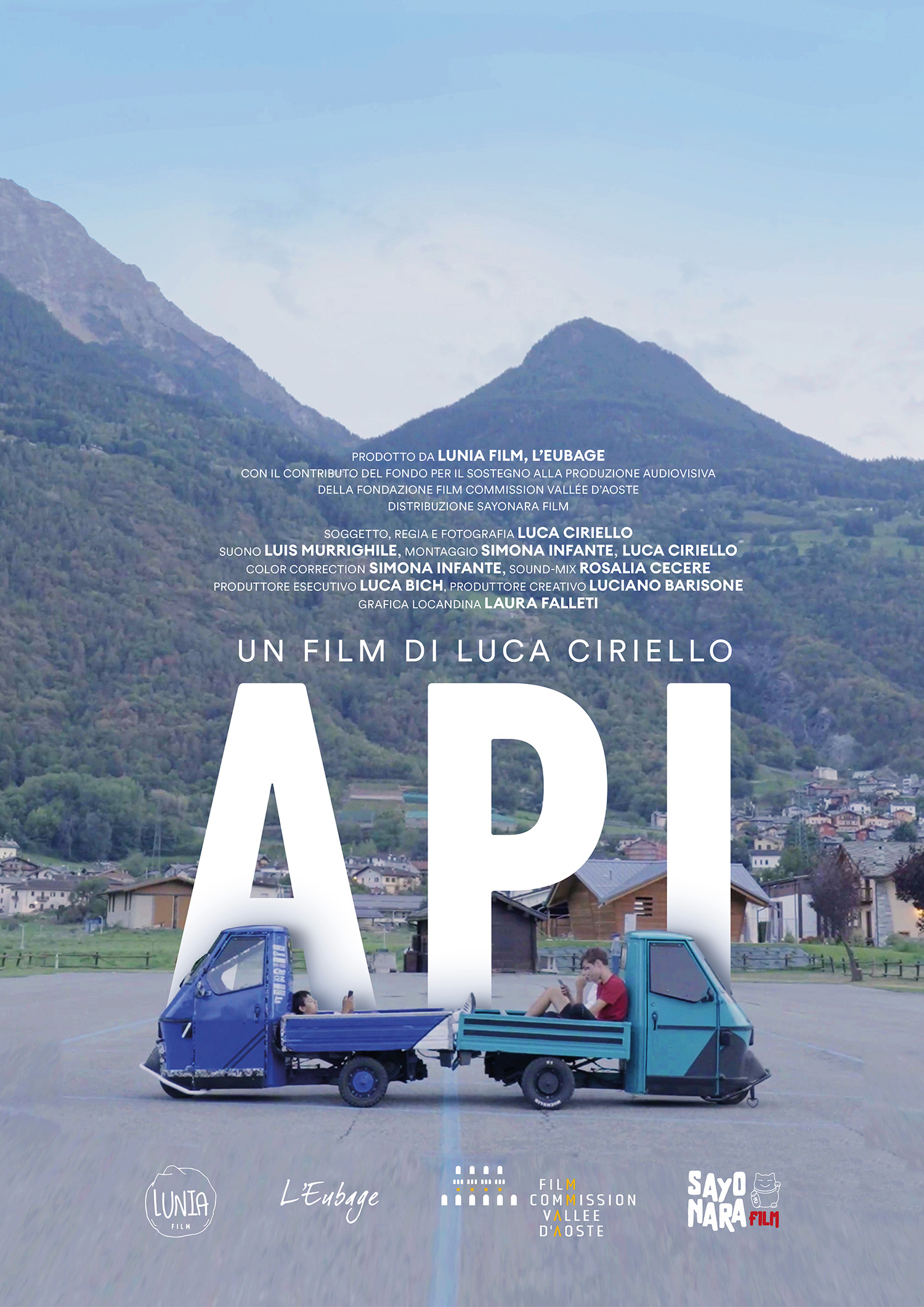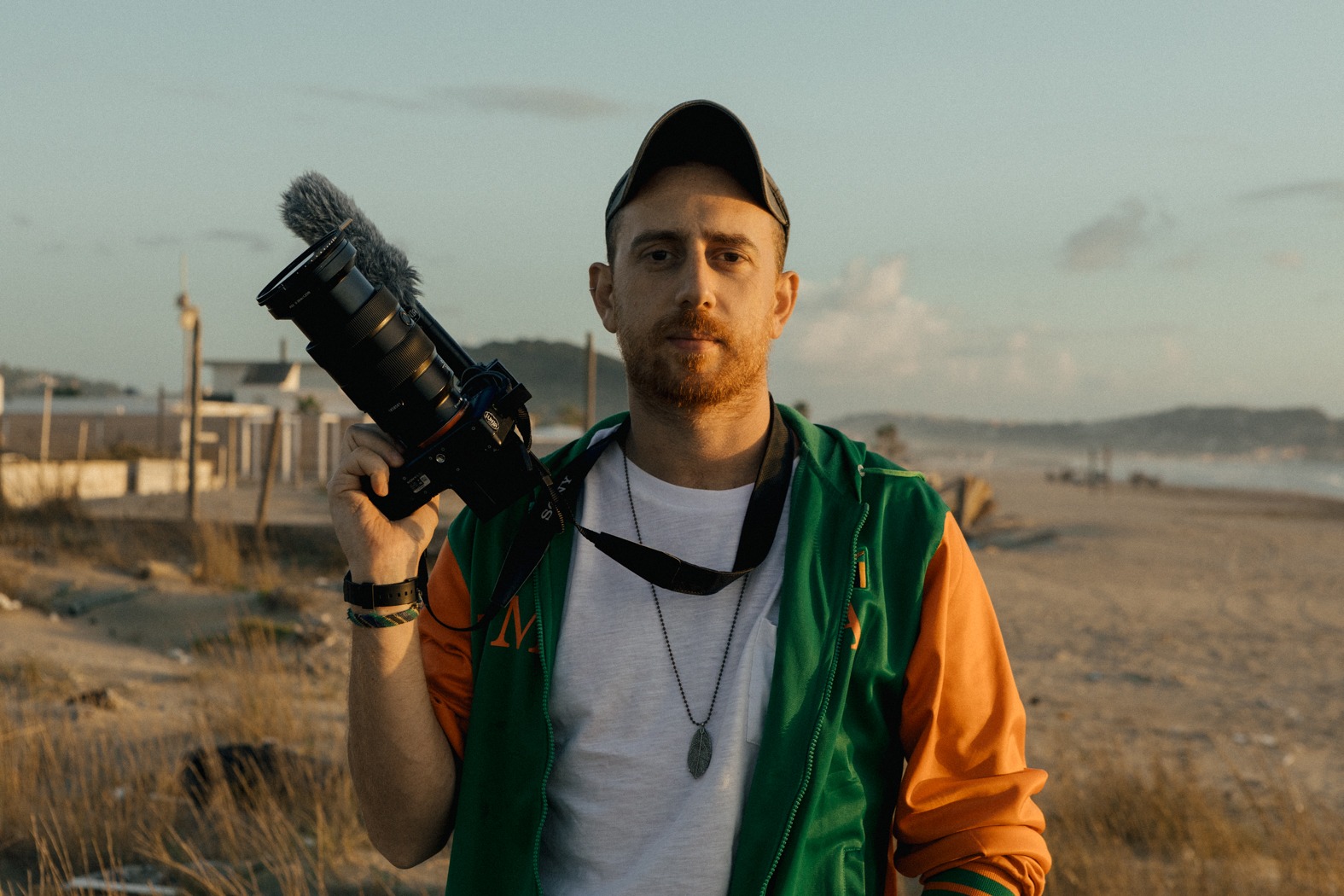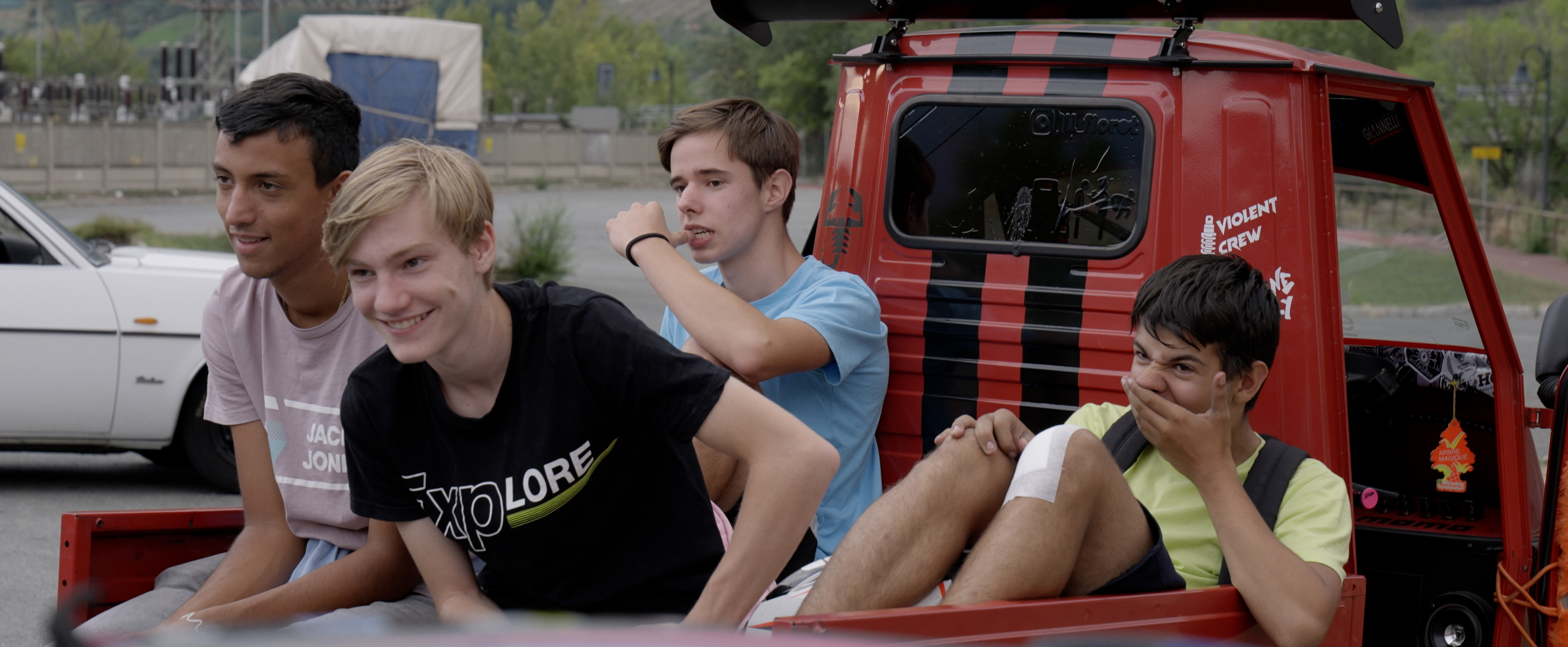COLLECTABLE STORIES: API

API
Short Talk with Luca Ciriello (director)

Italy / 2023 / 20’
BEST DOCUMENTARY FILM Category
21st IN THE PALACE International Short Film Festival 2024
Synopsis: The summer in the apecar of a group of teenagers from the Aosta Valley: afternoons and evenings spent between trap music and drifting, fear of the police and parties with friends. School is about to start again and the mountains around are very high.
Biography: Luca Ciriello is a documentary filmmaker and producer. Graduated in Modern Philology, in 2017 he founded the film company Lunia Film. In 2020 he participates in the Giornate degli Autori (Venice Film Festival) with the documentary "Forty horsepower" (Winner of the Laguna Sud Award) and in the Festival dei Popoli with the documentary "L'armée rouge". He has worked as a documentarist in: Italy, Spain, France, Tanzania, Colombia, Senegal, Sri Lanka.

Luca Ciriello, director
Vera Chandelle (author): Although this film is a documentary, it feels like a fiction film. How did you manage to do that?
Luca Ciriello (director): First of all, thank you for inviting me here and I want to share that it is the first European premiere of the film. Actually, “API” is the second part of a short film trilogy, which I wrote about teenagers. The idea was to talk about young people that get together, thanks to their passion for speed. In “Api” we see how they make a group, as for the first chapter of this trilogy I was working with people in the area in Venice, the same age group teens which were gathering around little speed boats. I wanted to display how teenagers stay together around something, not alone by themselves. In this case it’s a connection made by a festival, because “API” is shooted during a festival in Northern Italy. While I was screening my first movie there, I saw people going by three-wheel “tuk tuk” and I told myself that maybe this could be the second chapter of the trilogy. I did not know where I wanted to go, since the first documentary was in Venice, so I was looking for a location for the second one. I made some productions with the local film commission and I found a production.
Vera Chandelle: What is your approach with filming?
Luca Ciriello: My approach is to go to the place of filming and get involved in the area, to get to know the people. I did research using Tik-Tok in order to get to know where teenagers go, how they meet. I never directed them, it seems like I have, but they are totally free to do whatever they want. I am also totally free to do whatever I want and take any risk. For me risking is important and feeling the adrenaline, the fear. Speed is something that makes me excited and I make movies in order to be happy. I wanted to focus on young people, but express their positive side. My aim is not to judge them, but to be with them. We spent one full summer together. I told them that I want to speak about their life, but first of all I told them my story and we had very deep and intense conversations behind the camera. I showed them other movies that I have made, I showed them my passion about speed and motorbikes. Before meeting them, I had never driven a three-wheel, this auto is very weird to be used in the way these teens were using it. So, it is like sharing with each other our passion. Aosta Valley, where we made the film, is a calm place and I think coming from Napoli, where I am from, helped me. I talked with the parents of the kids, sincerely, because, of course, they were interested. I explained to them that their children could be the protagonist of the second chapter. The filming was fast-paced and there was a lot of running with the car to follow our characters and their actions.

Author's view (Petar Penev):
Api is a documentary short by filmmaker Luca Ciriello. It follows a group of troubled Italian male teenagers as summer comes to a close. They are trying to squeeze in as much fun as possible— a recipe for disaster or a cry for help?
One is either a rebellious teen or too far removed from this stage in life to empathise with the growing pains of this age. This is also the case with the adults in the world inhabited by the characters. We see the teens largely on their own, with no one to take care of them. This explains their behaviour of public disruption and obnoxious actions and the natural reactions from people who view the car as a natural extension of their body and a symbol of freedom used superficially to draw attention. Who knows if anyone will ever truly see them this way and not turn a blind eye?
People don’t become who they are out of nowhere. It is their environment that shapes them. If we don’t like how the teens behave, what does this say about us?






